Interesting Facts About John Cabot You Never Knew
You might be surprised to learn that John Cabot, born Giovanni Caboto, faced numerous setbacks in his explorations. His first westward voyage in 1496 failed due to food shortages and crew disputes. Cabot mistakenly believed he'd found a shorter route to Asia when he actually discovered Canada. His expeditions revealed vast cod fishing grounds, sparking economic interest in North America. King Henry VII's support was driven by economic and political motivations, challenging Spanish claims in the New World. Cabot's 1498 voyage remains shrouded in mystery, as the fate of his ships and crew is unknown. These lesser-known facts highlight the complex nature of Cabot's contributions to exploration history.
This post may contain affiliate links. If you make a purchase through these links, I may earn a commission at no additional cost to you. Additionally, portions of this post may be generated using artificial intelligence (AI) technology. While we strive for accuracy, please be aware that AI-generated content may not always be perfect and should be fact-checked when necessary.
The Spatula Scoops
- Cabot was born Giovanni Caboto in Italy and became a Venetian citizen before moving to England.
- His first westward voyage in 1496 failed due to food shortages and crew disputes.
- Cabot mistakenly believed he had found a shorter route to Asia when he discovered Canada.
- His expeditions revealed vast cod fishing grounds, laying the foundation for the Newfoundland fishery.
- King Henry VII awarded Cabot £10 and royal patronage for his successful 1497 voyage.
Cabot's True Name and Origins
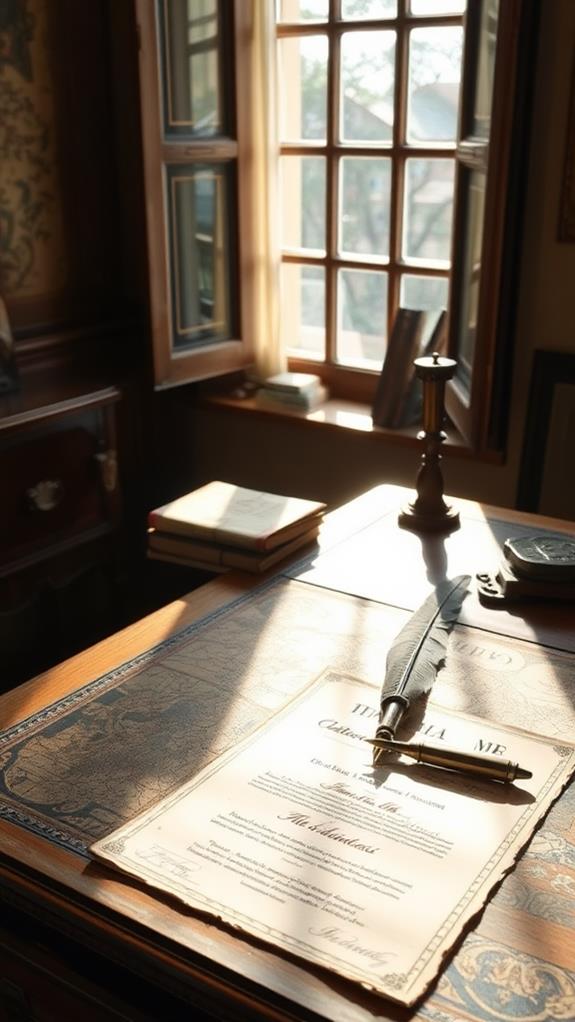
Surprisingly, John Cabot wasn't always known by that name. The explorer you've come to associate with early North American exploration was actually born Giovanni Caboto. This Italian name reflects his true heritage and identity, which you might not have known before.
Cabot was born around 1450 in Genoa, Italy, a city known for its maritime prowess. He came from a wealthy merchant family involved in the spice trade, which likely influenced his future career path. By the age of 11, Giovanni and his family had relocated to Venice, a move that would shape his future dramatically.
In Venice, young Giovanni was exposed to the bustling Mediterranean trade routes and the spirit of exploration that permeated the city. This environment nurtured his navigational skills and ignited his passion for discovery. In 1476, he became a Venetian citizen, further cementing his ties to the seafaring republic.
However, Cabot's life took an unexpected turn when he faced financial difficulties. These challenges ultimately led him to seek new opportunities in England, where he would later undertake his famous voyages under his anglicized name, John Cabot.
The Failed First Voyage
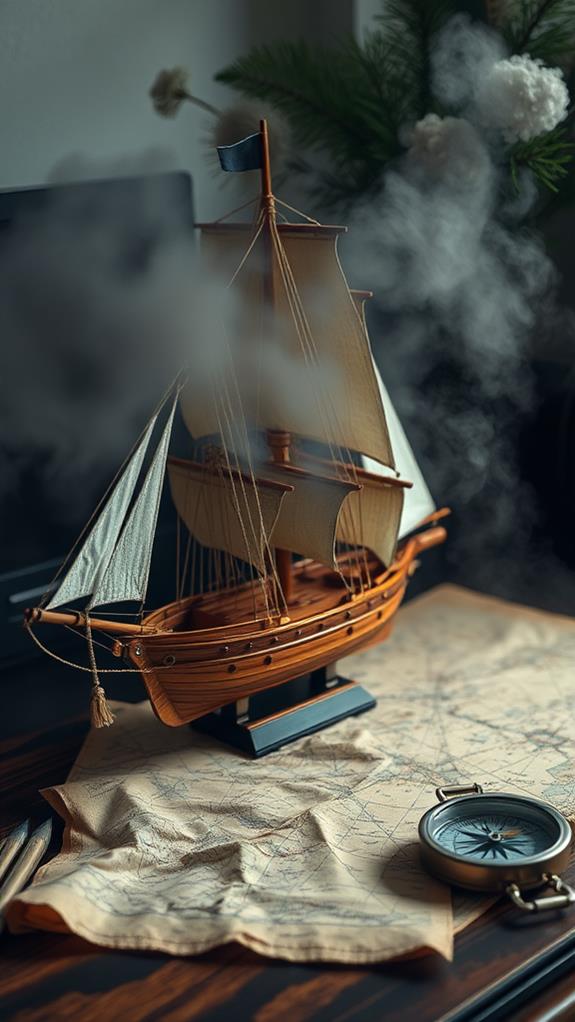
Despite his Italian origins and seafaring experience, John Cabot's first attempt at a westward voyage from England in 1496 ended in failure. You might be surprised to learn that this failed voyage was plagued by a series of setbacks that would have deterred many explorers. Cabot's expedition, which set sail from Bristol, quickly ran into trouble when they realized their provisions were insufficient for the journey ahead. This lack of proper planning led to food shortages, which in turn sparked crew disputes and unrest aboard the ship.
As you can imagine, these challenges made it impossible for Cabot to make any significant progress on his intended route. Faced with the very real possibility of starvation and mutiny, he was forced to abandon the voyage and return to England. However, this setback didn't crush Cabot's ambitions. Instead, it taught him valuable lessons about the importance of thorough preparation for transatlantic exploration. Armed with this knowledge, Cabot regrouped and sought royal patronage from King Henry VII. This support would prove essential for his successful expedition in 1497, which ultimately led to his famous discovery of North America.
King Henry VII's Hidden Motives
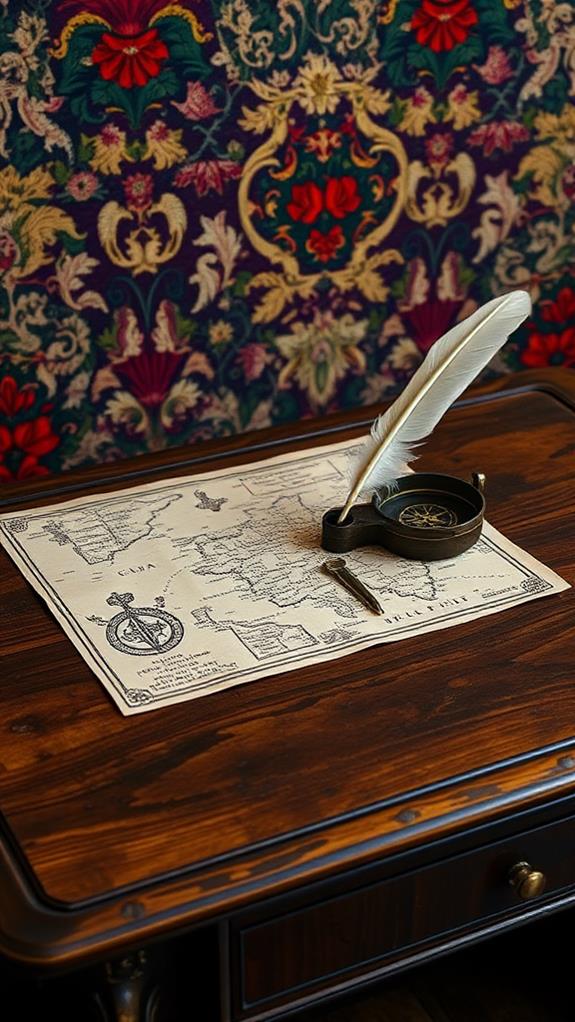
You might be surprised to learn that King Henry VII had some hidden motives for supporting John Cabot's voyages. His economic ambitions drove him to seek new trade routes and markets, hoping to position England as a global trading powerhouse. Additionally, Henry VII was keen to compete with Spain and Portugal in the race for colonial expansion, while also aiming to bolster England's naval power through these exploration ventures.
Economic Ambitions Drive Support
King Henry VII's support for John Cabot's expedition went far beyond mere curiosity about new lands. The monarch's backing was driven by a keen desire for economic gains and the establishment of England as a major trading centre. You might not realize it, but Henry VII saw Cabot's transatlantic exploration as a golden opportunity to:
- Access lucrative Asian markets through a shorter northwest route
- Outmaneuver rival nations like Spain and Portugal in trade dominance
- Tap into potential riches from fishing, particularly cod, and spice trade
The king's financial support for Cabot's 1497 voyage wasn't just a royal whim; it was a calculated move to boost England's wealth and global influence. Henry VII believed that success in this venture would yield profitable returns and secure his position as a forward-thinking monarch. The crown's interest in exploration was fueled by the allure of legendary riches in Cathay and Cipangu, today known as China and Japan. By backing Cabot's expedition, Henry VII aimed to strengthen England's economic position and carve out a significant role in the emerging global trade landscape.
Political Rivalry With Spain
While Henry VII's economic ambitions were clear, his support for Cabot's expeditions also concealed a deeper political motive. You might not know this, but Henry VII was playing a high-stakes game of international rivalry with Spain. After Columbus's voyages, Spain was rapidly gaining power and influence in the Americas. Henry VII didn't want England to be left behind.
By backing John Cabot's explorations, Henry VII hoped to challenge Spanish claims in the New World. He wanted to establish a British claim to North American territories, which would boost England's political status on the global stage. It wasn't just about finding new lands; it was about keeping up with Spain's growing colonial dominance.
Henry VII's strategy was twofold. First, he aimed to secure England's own slice of the profitable transatlantic trade. Second, he hoped to limit Spain's access to Asian resources, particularly valuable spices. By supporting Cabot, Henry VII was making a calculated move to enhance England's power and wealth while simultaneously undermining Spain's position. It was a shrewd political maneuver disguised as exploration.
Expanding English Naval Power
Three key motivations drove Henry VII's support for John Cabot's expeditions, and they all revolved around expanding English naval power. You might not realize it, but the king's backing of Cabot's voyages was a calculated move to boost England's maritime influence. Here's what Henry VII hoped to achieve:
- Establish new trade routes to Asia
- Claim resource-rich territories
- Elevate England's global trading status
Mistaken Identity of North America
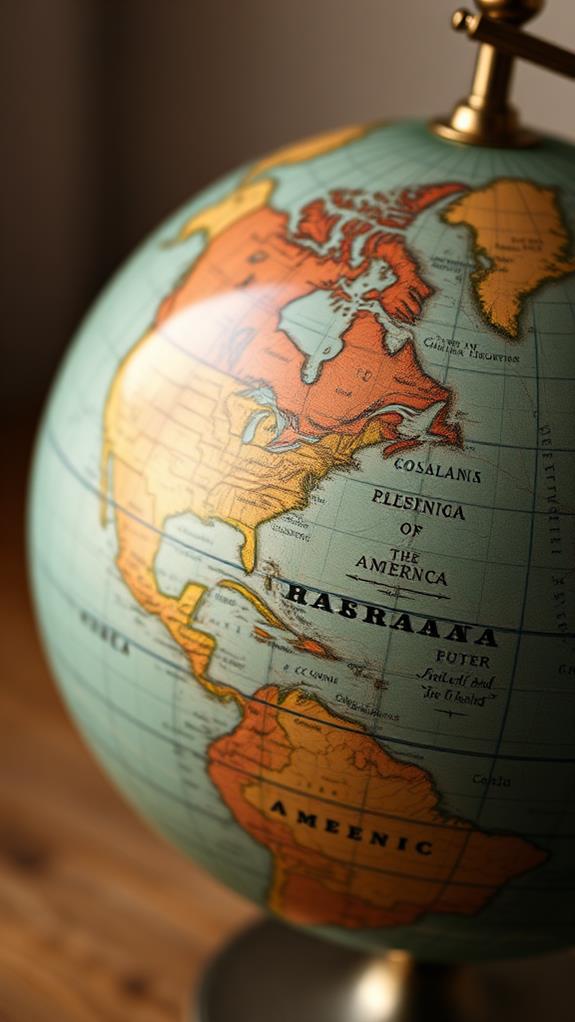
Cabot's voyage in 1497 led to a significant case of mistaken identity. As his ships sailed west, Cabot thought he'd discovered a shorter route to Asia. In reality, he'd stumbled upon what we now know as Canada. You might be surprised to learn that Cabot claimed the land for England, believing it was part of Asia.
This misconception wasn't unique to Cabot. Many European explorers of the time were convinced that sailing west would lead them directly to wealthy Asian markets like Japan and China. Cabot's error stemmed from the limited geographical knowledge of his era, which led to some interesting consequences.
The land Cabot explored was rich in natural resources, particularly cod. He saw this as evidence of the area's potential for trade, further cementing his belief that he'd reached Asia. This misidentification had far-reaching effects, kickstarting a series of English explorations and eventual colonization efforts in North America. It's a prime example of how misconceptions can shape history, influencing decisions and actions that have long-lasting impacts on the world.
Unexpected Fishing Discoveries
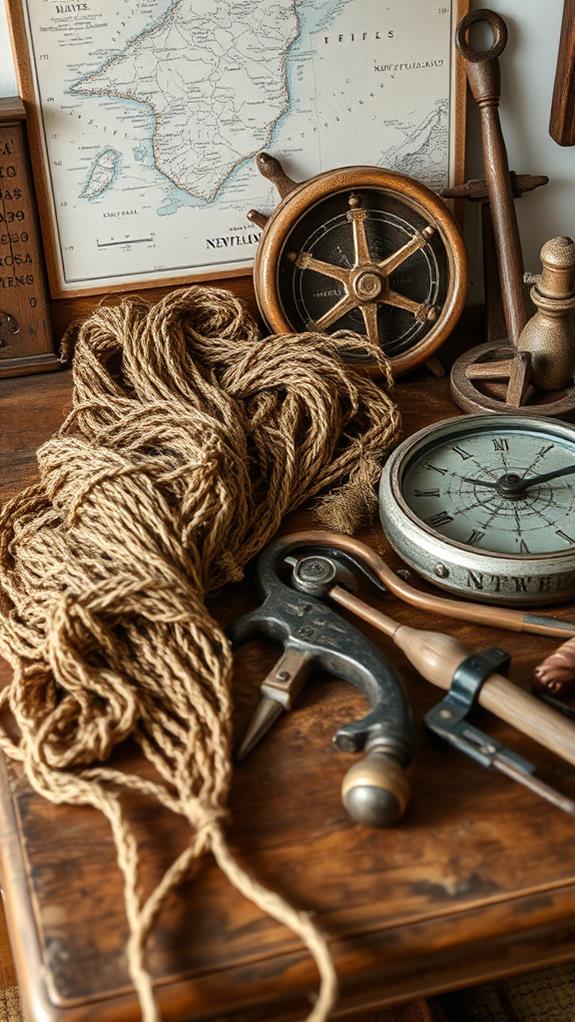
Though Cabot set out to find a westward route to Asia, he stumbled upon an unexpected treasure: vast fishing grounds teeming with cod. You might be surprised to learn that Cabot's expedition in 1497 made a groundbreaking discovery in the Atlantic waters off North America. His crew caught impressive quantities of cod using simple baskets, highlighting the region's rich fisheries.
This unexpected find had far-reaching consequences:
- It sparked growing interest in North America's fishing resources
- It laid the foundation for the Newfoundland fishery
- It became a vital economic activity for England
The abundance of fish in these waters was so remarkable that it attracted European fishers long before permanent settlements were established. While Cabot's primary goal was to reach Asia, the discovery of these bountiful fishing grounds turned out to be one of his expedition's most significant outcomes. This finding would go on to shape the future of transatlantic trade and settlement in North America. The Newfoundland fishery, which Cabot's voyage helped establish, became an essential economic driver for England in the centuries that followed.
Royal Rewards and Recognition
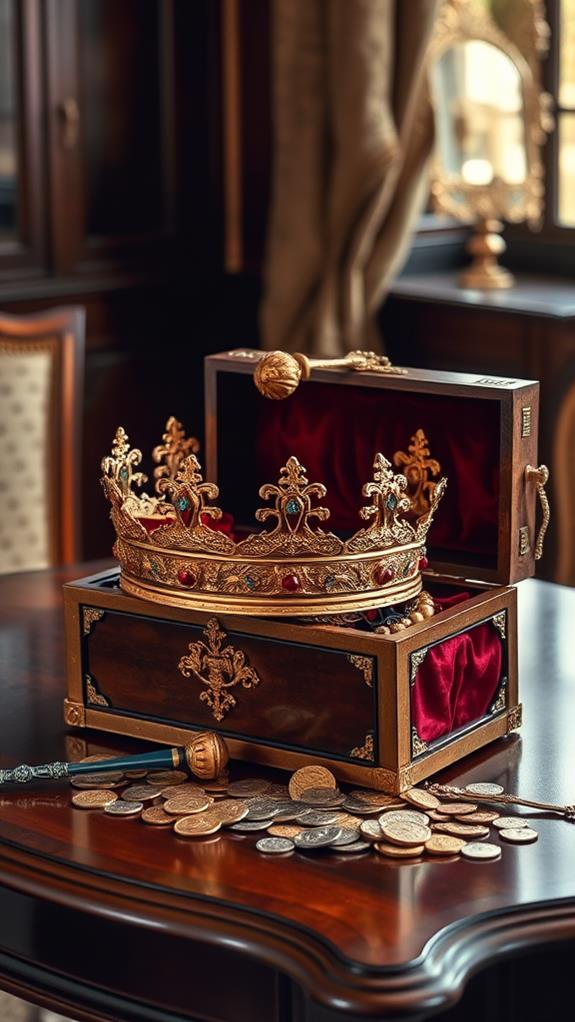
While Cabot's fishing discoveries were impressive, his royal backers were equally pleased with his land claims. King Henry VII rewarded Cabot with £10 for his successful voyage to Newfoundland in 1497. But that wasn't all. The explorer received royal patronage, which included financial backing and exploration rights in the newly discovered territories.
You might be surprised to learn that Cabot's achievements led to a century of English exploration and colonization efforts in the Americas. His success caught the king's attention, prompting the authorization of a second expedition in 1498. This showcased the monarchy's continued investment in Cabot's exploratory endeavors.
Unfortunately, Cabot mysteriously disappeared during his second voyage. However, his earlier accomplishments cemented his place in British maritime history. You'll find that Cabot is now recognized as one of the earliest explorers to connect England with the New World. His royal rewards and recognition paved the way for future explorers and helped establish England's presence in North America, setting the stage for the country's eventual colonial empire.
Mysterious Disappearance at Sea
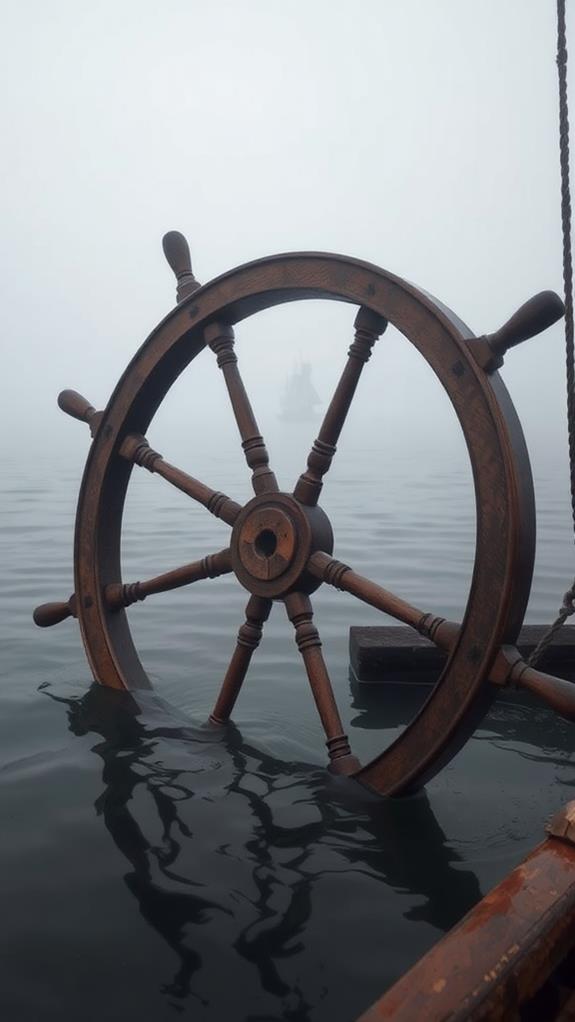
Mystery shrouds the final chapter of John Cabot's life. After his triumphant first voyage in 1497, you might think Cabot's second expedition in 1498 would've been another success. However, it was plagued with challenges from the start. With a fleet of five ships and about 300 men, Cabot set out to explore more of North America's eastern coast. But fate had other plans.
Cabot's mysterious disappearance occurred sometime between 1499 and 1500, leaving historians puzzled for centuries. Here's what we understand:
- One ship was damaged and diverted to Ireland.
- The remaining ships and crew's fate is uncertain after their departure.
- No surviving records detail the outcome of the second expedition.
Despite efforts to continue exploration, no concrete evidence has been found to explain what happened to Cabot and his crew. Some historians speculate that he might have survived and continued exploring the eastern Canadian coast, but these claims lack solid proof. The absence of definitive information has contributed to the enduring historical mystery surrounding Cabot's final days, making it an intriguing subject for researchers and history enthusiasts alike.
Did John Cabot and Charles Dickens Share Any Surprising Historical Connections?
John Cabot and Charles Dickens lived in entirely different eras, yet both shaped history in their own ways—Cabot as an explorer and Dickens as a literary icon. While there’s no direct connection, exploring interesting facts about charles dickens highlights his sharp social commentary, echoing a curiosity for uncharted territories, much like Cabot’s voyages.
Legacy in Exploration History
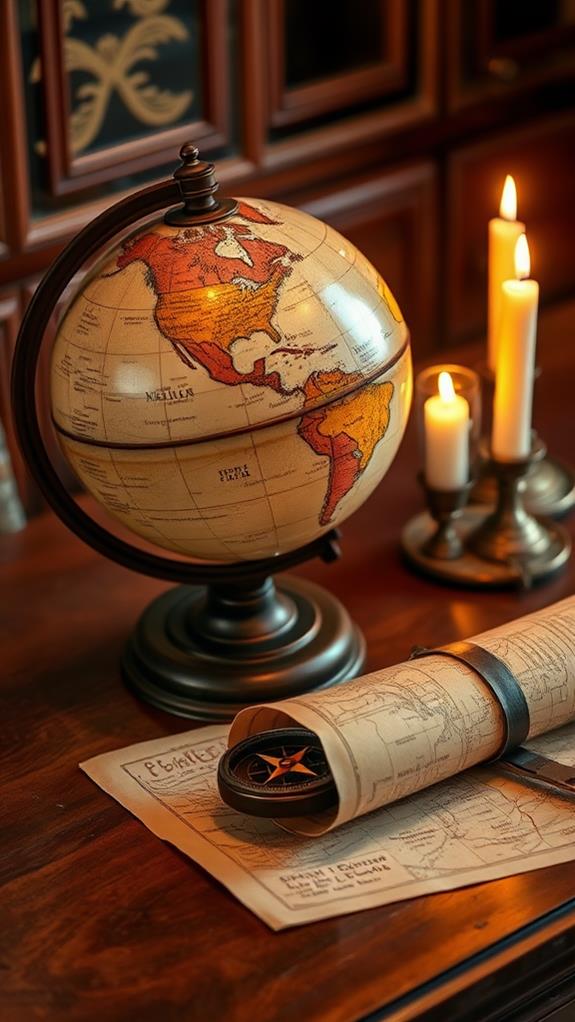
Despite the uncertainty surrounding John Cabot's final days, his impact on exploration history remains undeniable. You might not realize it, but Cabot's 1497 voyage to North America set the stage for British colonial expansion and transatlantic trade. His reports of fertile lands and abundant fish stocks sparked interest in further exploration, ultimately leading to the establishment of British colonies across the Atlantic.
Cabot's legacy extends beyond just claiming land for England. He demonstrated the viability of a northern Atlantic route, which influenced future explorers and shaped the course of the Age of Exploration. This maritime achievement can't be overstated, as it opened up new possibilities for trade and settlement.
Moreover, Cabot's contributions to mapping the North American coastline were essential for subsequent explorers and colonizers. His work laid the foundation for more detailed cartography, enabling safer and more efficient voyages. Even today, Cabot is recognized as a pivotal figure in British colonial history, his explorations having paved the way for centuries of transatlantic connections and the eventual formation of new nations.
Frequently Asked Questions
What Are Some Unique Facts About John Cabot?
You might not know that John Cabot's real name was Giovanni Caboto. He was born in Italy but became a Venetian citizen before exploring for England. Cabot's 1497 voyage made him the first European since the Vikings to reach North America. He thought he'd found Asia, though. Curiously, Cabot struggled to fund his expeditions, which led him to move to England. His disappearance after a 1498 voyage remains a mystery, with historians debating his fate.
What Is an Interesting Fact About Cabot?
Did you know that John Cabot received a surprisingly small reward for his groundbreaking discovery? After claiming North America for England in 1497, he was given just £10 by King Henry VII. That's equivalent to about £7,600 ($9,500) in today's money. While it might seem like a pittance for such a significant achievement, it reflects the expedition's initial perceived value. The voyage didn't bring back spices or riches, which were highly prized at the time.
Did John Cabot Go to School?
You might wonder if John Cabot attended school. While there's no concrete evidence of formal schooling, it's likely he received a basic education in navigation and sailing as part of a wealthy merchant family. His education was probably supplemented by practical experience in trade and his time in Venice, where he'd have learned essential skills like cartography and astronomy. Cabot's real-world experiences in Mediterranean trading routes likely provided him with a hands-on education in exploration and commerce.





